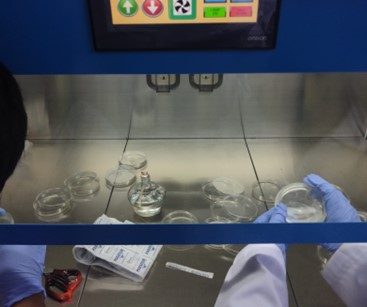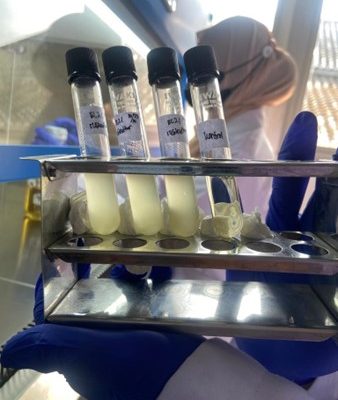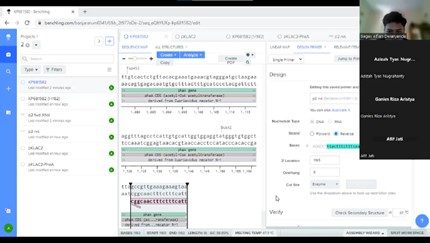[MBKM]- Plastic has become an inseparable part of modern human life, from clothing, food packaging, household tools, to building materials. Despite its various benefits, plastic poses a significant threat to the sustainability of life on Earth, with over 10 million tons of plastic waste released into the environment and oceans annually. Numerous efforts are ongoing to address this issue, one of which involves seeking alternatives to conventional plastic that are more eco-friendly and sustainable. One potential substitute is PHB or polyhydroxybutyrate, a biopolymer naturally found in various types of microorganisms. It’s believed to become the primary polymer for future plastic materials, replacing conventional petroleum-based plastic due to its biobased, biosynthesized, and biodegradable. Recognizing this challenge and opportunity, three students from the Faculty of Biology UGM, Azizah Tyas Nugrahanty, Bagas Alfian Dwiaryanda, and Lucia Arum Sekar Meysari, embarked on the Independent Learning- Independent Campus (MBKM), focusing on developing effective and efficient PHB-producing organisms by utilizing genetic transformation technology.
This MBKM program was conducted under the guidance of Ganies Riza Aristya, S.Si., M.Sc., Ph.D., from the Faculty of Biology, UGM, in collaboration with Raden Afif Pranaya Jati, S.P., M.Sc., from the Indonesian Bioinformatics Institute (INBIO-Indonesia). Throughout the research, the students engaged in various activities ranging from dry lab experiments to wet lab experiments. The study began with discussions regarding the selection of vectors and host microorganisms to be used. Subsequently, they designed plasmid vectors for genetic transformation and created primers to serve as markers for positive colony identification through colony PCR. The research then progressed to the wet lab phase at the Genetics and Breeding Laboratory at Faculty of Biology UGM, involving the preparation of competent cells, genetic transformation using the electroporation method, colony PCR followed by electrophoresis to confirm positive colonies carrying the target gene. As of now, the team has successfully incorporated synthetic genes constructed within the plasmid into bacterial cells as candidates for naturally producing PHB microorganisms.




